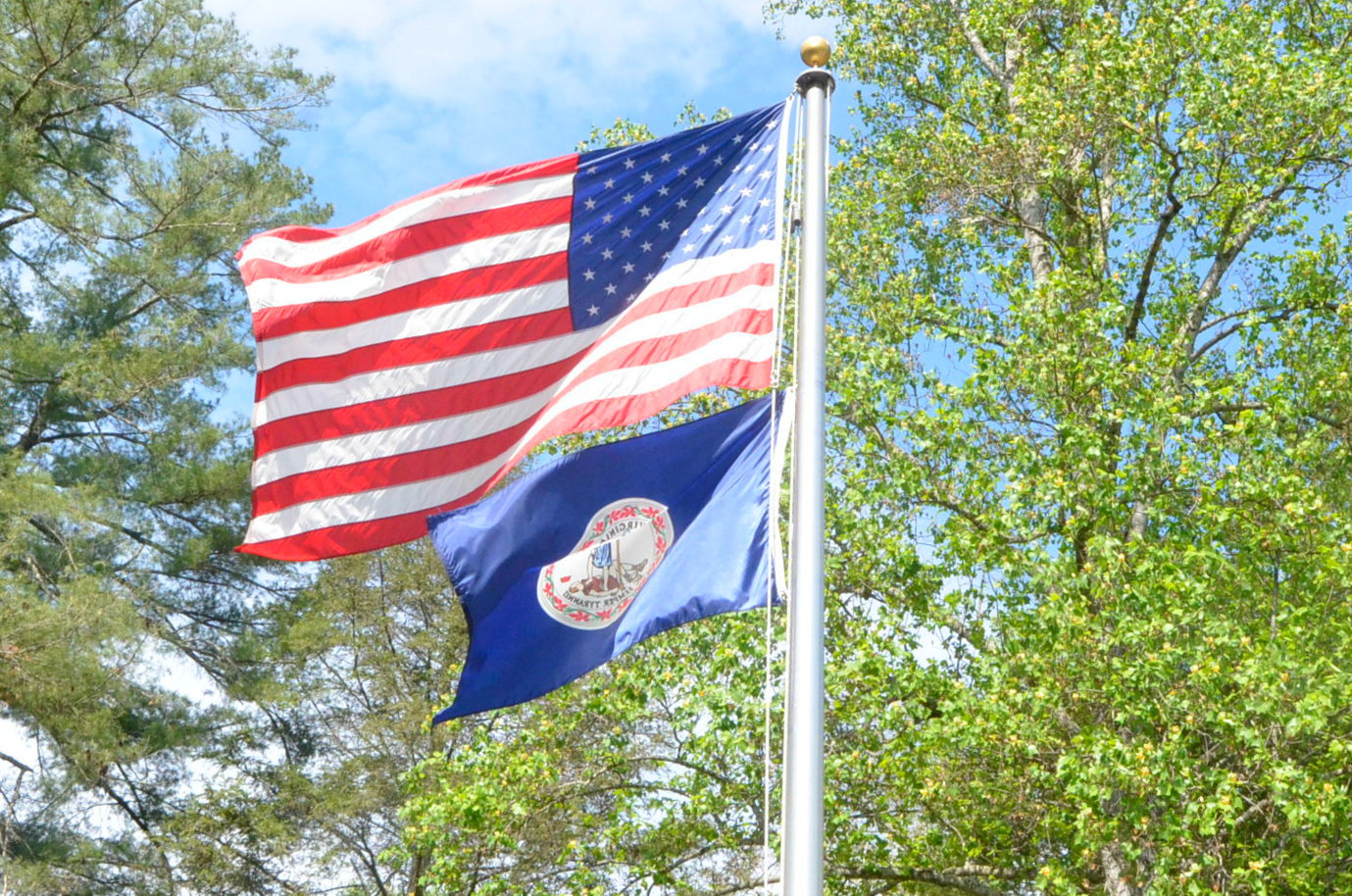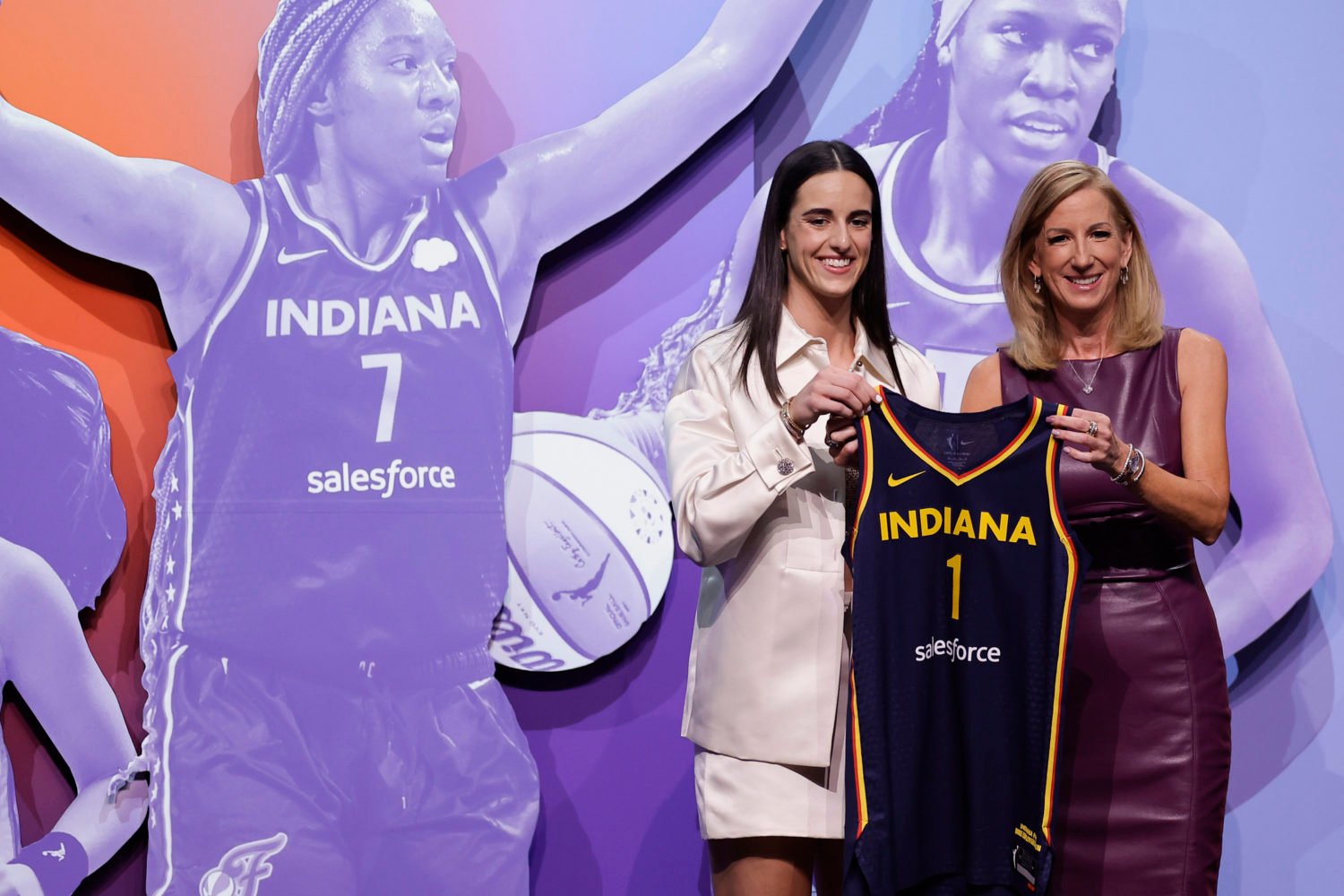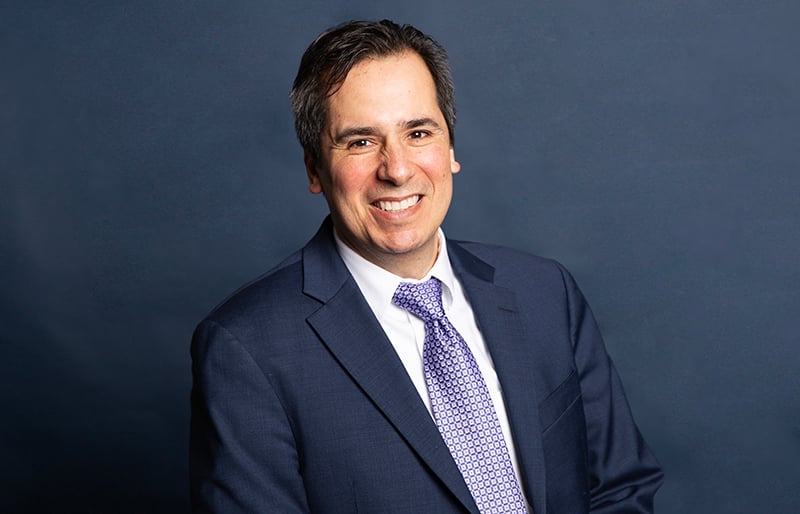No one makes it big by thinking small. The 2002 honorees of the Washington Business Hall of Fame had big dreams and both the intelligence and the heart to make those dreams come true. d Bill Marriott grew his father's fledgling hotel operations into a hospitality giant. Jim Clark built a local building company into a national construction colossus. Joe Allbritton parlayed a few savings-and-loans in Texas into a communications-and-banking empire. Jack Valenti made Hollywood a power on the Potomac. Esther Smith heralded the emergence of Washington as a high-tech center when others still saw us as strictly a government town. d The Washington Business Hall of Fame was founded in 1988 by the Greater Washington Board of Trade and The Washingtonian for the benefit of Junior Achievement of the National Capital Area. d Junior Achievement sent 695 business volunteers into 658 area classrooms last year to build the students' business literacy. The volunteers also serve as role models for 20,000 kids from kindergarten through 12th grade. d The 2002 laureates will be inducted into the Washington Business Hall of Fame at the Marriott Wardman Park Hotel on November 13. d They prove that one man or woman who thinks big can have a big impact on the community and the country.
J.W. MARRIOTT
From Hot Shoppes to Worldwide Hotels
The marriott corporation had grown from a root-beer stand on DC's 14th Street Northwest into a thriving restaurant and food-service company when young Bill Marriott got out of the Navy in 1956.
Joining the family firm, Bill asked to run the company's hotel division. At that time, it consisted of a hole in the ground in Arlington that would be Marriott's first motor hotel.
"When I look back, I have to laugh at how little we knew when we started out in lodging," Bill Marriott says. "In today's competitive environment, we'd have been eaten alive."
In 1964, J.W. Marriott Sr. appointed his son president of the corporation. Eight years later, Bill became CEO and began moving aggressively to expand the hotel business. Marriott opened its 100th hotel in 1981.
By the mid-'80s, Marriott had created hotel brands–from the budget-minded Courtyard by Marriott to the high-end Renaissances–and was opening an average of two new hotels a week.
Then came the real-estate recession of the late 1980s. Marriott split into two companies: Host Marriott owns the real estate, and Marriott International manages the hotels. He sold the airline-catering business. By 1995, both companies were booming, and Bill Marriott was hailed as a visionary.
Today Marriott has 2,200 hotels, inns, and resort properties. It operates in the United States and 64 countries, and the properties include the Renaissance Hotel Group and the Ritz-Carlton hotels. "We want to be the number-one presence in lodging all over the world," Marriott says.
Bill Marriott credits his success to the company his company keeps. Training, promoting, and rewarding "associates" is a top priority. Fifty percent of managers come from the hourly ranks.
In fact, Marriott is the pied piper for the hospitality business, urging young people to seize the opportunities it offers. In 1989, he started the "Bridges . . . From School to Work" program to train young people with disabilities for jobs. Two years ago, he helped launch DC's Marriott Hospitality Public Charter High School–the first public high school of its kind.
Attitude is everything, Marriott tells the students. It is easier, he believes, to hire a good person with the right attitude and train him or her in the technicalities of a job than it is to teach a technically competent person how to smile.
For Bill Marriott, there is plenty to smile about. "I love to see people grow," he says.
A.JAMES CLARK
He Built a Construction Colossus
Jim clark believesthat the mark of a great building is what you don't see. "The best are the ones built withoutcontroversy, when the owner, the architect, and the builder work together," Clark says. He sees construction as a service business and Clark Construction as a company built on people, not blueprints or bricks.
It is a lesson he learned from his mentor, Benjamin Rome, who learned it from his mentor, George Hyman, founder of the company that was to become Clark Enterprises.
"Ben Rome was a perfectionist," Clark recalls. "He checked every letter that went out to make sure the English wascorrect."
Rome hired Clark out of the University of Maryland College of Engineering. Clark started at $60 a week in 1950 as a layout man on a construction site. Three years later, Rome brought him into the office as a manager–but Clark still began every morning in the field checking on construction jobs.
By 1960, Clark was general manager of the company. These were growth years for Hyman Construction. The University of Maryland was on the move, and Hyman did much of the building. The company also began working with commercial developers and got the contract to build the first phase of L'Enfant Plaza. At the time it was one of the biggest private projects built here.
In 1969, Clark bought the company and began to expand beyond the capital area.
"We had a big percentage of the Washington work," he says. "We expanded primarily for our people–if you don't offer more opportunities, you don't keep good people."
The company took flight with its first out-of-town job: Clark built Hartsfield International Airport in Atlanta.
Clark Enterprises is now a $2-billion-a-year company with more than 4,000 employees and six offices across the country.
Jim Clark has not forgotten his roots. The school of engineering at the University of Maryland bears his name, and he serves on the board of trustees of the College Park foundation.
Clark is proud that his company is rebuilding one of the first Washington structures he ever worked on–the American Red Cross. "We saved the facade," he says proudly.
Preserving the good, making it better, just the way thecustomer wants it–that's the way Jim Clark built a great company.
ESTHER SMITH
She Made Business News
When esther Smith came here in 1972, she was a military wife who couldn't get a job that paid enough to cover the babysitter's fee.
Six years later, she helped to start the area's first business newspaper, the Business Review of Washington. In 1982, Smith became the founding editor and general manager of the Washington Business Journal, the most successful start-up business publication in the country.
Not bad for a woman with a bachelor's degree from a small women's college, a short stint as an intern at the Atlanta Journal-Constitution, and a brief career as a tax preparer for H&R Block.
How did she do it? Smith answered an ad from a publisher of local newspapers who was looking for a part-timer to help start a weekly business paper.
Smith didn't wait for a reply. She went to see the man. He had a big stack of résumés on his desk, but Smith convinced him to ignore all the others and hire her. The salary was embarrassingly low, and few people expected the Business Review of Washington to survive.
The paper flourished. Smith saw something that other Washington journalists missed–business was the great untold story in what others saw as a government town. She succeeded because the Washington Post and Washington Star did such a bad job covering business, Smith says.
The headline of WBJ's first issue in 1982 showed Smith's prescience–GROWTH OF HIGH-TECH COMPANIES ALTERS AREA LANDSCAPE.
Smith left the Journal that same year when her husband, an Army general, was assigned to Fort Bragg. Three years later she was back with an idea for a new publication.
By spring 1986, she was presiding over Tech News Inc., which produced Washington Technology and created the Greater Washington High Tech Awards. By the time the Washington Post Company purchased Tech News in 1996, Smith had become head cheerleader for the area's high-tech community.
Active in the Women's Forum and Womenangels.net, Smith has nurtured women as journalists and entrepreneurs.
Now a partner in McLean-based Qorvis, Smith advises companies on corporate governance and investor relations.
Smith imbues everyone she meets with her entrepreneurial spirit. "I like new stuff," she says. "I'm a good starter; I'm not interested in finishing." Not when there are so many new ideas.
JOE L. ALLBRITTON
A Texan Banks on Washington
When Joe L. Allbritton came here in 1974 as the new owner of the Washington Star, he had never been inside a newspaper office. Allbritton thought the newspaper had potential that local people missed. "Opportunities in a community are rarely seen by the people who grew up there," he says.
Allbritton still thinks he could have saved the Star. He had acquired Washington's Channel 7 as part of the deal, and the TV station's profits almost offset the newspaper's losses. "The money from TV could have supported the Star until the cows come home," he says.
Then the Federal Communications Commission ruled that one company couldn't own a newspaper and a TV station in the same market. Allbritton sold the Star to Time Inc. in 1978, and the paper folded in 1981. By then Allbritton was sold on Washington. "This city has been first-class to me and my family," he says.
In 1980, when he had the chance to buy a controlling interest in Riggs Bank, he jumped at the chance. "When I first offered to pay $67.50 a share, people said I was crazy," Allbritton said in 1981. "Now–it's a good buy. In two years, the story will be that 'he stole the bank right out from under our eyes.' "
Joe Allbritton was a success before he came to Washington. A graduate of Baylor University law school and a champion debater, he never intended to practice law. In those days, you went to law school to go into business, he says. He made a fortune with savings-and-loans in Texas. He succeeded because he had an ability to gauge people and their intentions, he believes. "Even with collateral, you can lose," Allbritton says. On the other hand, if the borrower "is determined to pay, he'll find a way."
Allbritton admits he's had time on his side. He got into television in time to watch it grow. Today he owns seven ABC-affiliated TV stations, including WJLA-TV and NewsChannel 8 on cable, as well as daily and weekly newspapers.
Allbritton became senior chairman of Riggs in 2001. His son, Robert, is chairman and CEO of the Riggs holding company and president of Allbritton Communications.
Allbritton serves on several boards and as a trustee of three presidential foundations. But he has never had a love affair with power: "I was not raised in that environment. I'm more enamored with profit. If you have to choose, that's a good choice."
JACK VALENTI
Mr. Hollywood on the Potomac
"Hollywood is an easy sell," says Jack Valenti, the movie industry's man in Washington. "Everybody is enchantedby the movies."
As chairman and CEO of the Motion Picture Association of America, Valenti talks a lot about movies, and in the past decade the talk has gotten a lot tougher.
Valenti has had to deal with complaints about explicit sex, bad language, and violence in films as well as global piracy and export barriers to the export of American movies.
To protect and defend the film industry, Valenti employs a combination of pragmatism and personal diplomacy. In 1968, he and the National Association of Theatre Owners created a rating system that warns patrons about possibly objectionable movie content.
Valenti also brings Hollywood to the Potomac. Armed with access to the newest films and a 70-seat screening room, Valenti's movie invites are among the most coveted in town.
Valenti credits much of his success to lessons he learned from Lyndon Johnson. He has friendships on both sides of the aisle.
Valenti is frank about protecting the rights of filmmakers even if he hates their films. When Oliver Stone's movie JFK was released, Valenti said, "The price you pay for freedom is this slime."
Jack Joseph Valenti's life would make a terrific movie. The son of immigrants, he finished high school at 15, joined the Air Corps, and flew 51 combat missions in World War II.
After the war, Valenti got an MBA, started an advertising and political-consulting agency in Houston, and met Senate majority leader Johnson. Valenti idolized Johnson and began helping him in Texas. In 1963, Valenti's agency was hired to promote President John F. Kennedy's visit to the state. He was six cars behind the presidential limousine when Kennedy was shot.
Less than an hour later, Valenti was on Air Force One on his way to Washington as special assistant to President Lyndon Johnson. Three years later, Valenti was tapped for a presidency of his own–as head of the Motion Picture Association of America.
Valenti now hires others to do the day-to-day congressional relations while he concentrates on international issues. He also helps countless charities and emcees fundraisers all over town.
Now 81, Valenti isn't slowing down. "You have to be on the battlefield," he says. "You have to dare greatly every day."
Past Honorees
NORMAN R. AUGUSTINE
ROBERT C. BAKER
JAMES G. BANKS
DANIEL BANNISTER
SISTER M. MAJELLA BERG
DONALD S. BITTINGER
ROGER R. BLUNT
EARLE PALMER BROWN
MORRIS CAFRITZ
WILLIAM CALOMIRIS
ELIZABETH PFOHL CAMPBELL
OLIVER T. CARR JR.
NEHEMIAH AND ISRAEL COHEN
EDWIN I. COLODNY
JOHN J. CURLEY
DR. LLOYD H. ELLIOTT
GEORGE M. FERRIS SR.
ROBERT V. FLEMING
IRVING GOLDSTEIN
KATHARINE GRAHAM
THEODORE R. HAGANS JR.
STEPHEN D. HARLAN
WILLIAM HARPS
WILLIAM C. HARRIS
JOHN T. HAZEL JR.
SIDNEY L. HECHINGER
CHRISTIAN HEURICH SR.
WILHELMINA HOLLADAY
EDWIN T. HOLLAND
GEORGE W. JOHNSON
CLIFFORD KENDALL
JAMES V. KIMSEY
WILLARD M. KIPLINGER
DAVID LLOYD KREEGER
JOHN A. LANKFORD
R. ROBERT LINOWES
LOUISE LYNCH
JANE E. MARILLEY
J. WILLARD MARRIOTT
DAVID O. MAXWELL
WALTER F. MCARDLE
WILLIAM G. MCGOWAN
EUGENE MEYER
JESSE H. MITCHELL
MARIO MORINO
ALLEN H. NEUHARTH
THORNTON W. OWEN
FLAXIE M. PINKETT
ABE POLLIN
THOMAS G. POWNALL
COLEMAN RAPHAEL
JOSEPH H. RILEY
BENJAMIN T. ROME
BERNARD FRANCIS SAUL
IVAN SELIN
FOSTER SHANNON
CATHERINE FILENE SHOUSE
JEAN HEAD SISCO
CHARLES E. SMITH
JOHN D. STEWART
W. REID THOMPSON
CARMEN TURNER
JULIA M. WALSH
WALTER E. WASHINGTON
EARLE C. WILLIAMS
EDWARD BENNETT WILLIAMS
ROBERT H. ZALOKAR

















